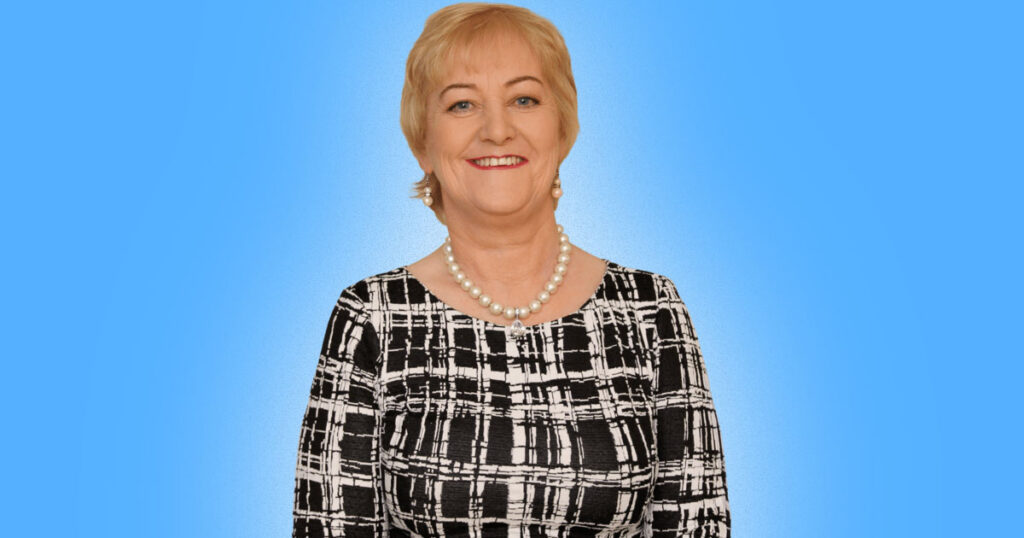More women needed in Inishowen politics

Rena Donaghey
Rena Donaghey, Inishowen’s only woman councillor and one of just four women on Donegal County Council, wants more female councillors elected to ensure women’s needs are not ‘overlooked, misunderstood’ or even ‘actively suppressed’.
Nationally, women make up only 26 per cent of councillors; in Donegal that drops to just 11 per cent.
Now, campaign group Women For Election aims to get women involved in local and national politics. It plans to get more women running in the 2024 local elections.
“Women account for roughly 50 per cent of the population and this is not replicated in politics or in public life. The imbalance needs to be addressed,” the Fianna Fáil councillor said.
“Women understand women’s issues best. Particularly during covid, we saw the awful increase in violence against women. We need to protect women’s rights.
“We must ensure equal pay and benefits at work; we must ensure that women have proper healthcare the same as everyone else.”
Cllr Donaghey cited recent changes in legislation, promoted by Minister Helen McEntee, Senator Lisa Chambers and other female Government members, to allow time off, parental leave and maternity pay.
She said this was as example of female representatives making changes for women on issues that have been ignored by male politicians.
“If it was not for the intervention and hard work of these politicians these and others, necessary changes would not have come about.
“I would never say that women make better politicians than men, but women understand women’s issues best,” Cllr Donaghey said.
Women can feel isolated in a space that is currently male dominated, she said.
Candidate selection procedures, poor financial support and work practices that are not family-friendly, influence women’s participation in politics, said Cllr Donaghy.
“Being a councillor is certainly not a nine to five job, it’s seven days a week, 52 weeks a year,” she said. “It can be quite demanding, and you may have requests as early as 8am in the morning or at 11pm at night. It’s not a good mix when you have young children and is quite off putting for a lot of females,” she said.
Age as much as gender
Mary Coughlan, a Fianna Fáil TD for Donegal South West from 1987-2011, held ministerial office and was Tánaiste.
She’s one of only two female TDs elected in Donegal since the foundation of the State 100 years ago.
Independent Senator Eileen Flynn, appointed to the Seanad by the Taoiseach, is the only Donegal woman currently in the Oireachtas.
Ms Coughlan told the Inishowen Independent that quotas aren’t perfect but should be built upon.
“The idea was that through that system more women would be candidates and then you would hope after that more women would be elected,” the former Minister said.
“That did happen on occasion, but it hasn’t done as much as we would like and we’re probably going to have to look at alternatives.
“I think people are positively disposed to women candidates and women elected representatives, but I also think that, quite recently, politics has become quite vindictive and vile especially at social media level.
“We’ve seen a number of my former colleagues being harassed online. That is very off-putting and some people – and I would say this for men and women – will not put themselves into the public arena if that is the type of response they’re going to get,” she said.
Ms Coughlan had a long political career, beginning in 1987 when she at 21 won a by-election for the seat that was held by her late father Cathal.
She does not believe discriminatory attitudes held her back in any way as she went on to serve as Minister for Agriculture, Minister for Enterprise, Minister for Education, and Tánaiste.
“I would have seen my age as a bigger deterrent, because if you would have looked at the council, most of the people that were elected were of my father’s era, so they would have seen me in the light of their daughters as opposed to their equal and their colleague,” she said.
“But I learned that you had to respect the older members of the party and those that were elected and wait your turn to move up the line.
Gender Quotas
Gender quotas have been introduced for Dáil elections to increase the number of women TDs, and have had some limited success.
In the next election, political parties risk losing half their State-funding unless 40 per cent of candidates are women (that’s up from 30 per cent in the last elections).
There are no gender quotas for local elections.
Of the 19 candidates who contested the 2019 local elections in Inishowen, six (31 per cent) were female, but only one of the nine councillors elected was a woman.
In North Inishowen Marie Duffy ran for Fianna Fáil and received 627 votes; Tracy Cullen, Independent, got 282 votes; and Mary Doherty, Aontú, got 195.
In South Inishowen Rena Donaghey, Fianna Fáil received 1,436 votes and was elected; Michelle McKenna, Fine Gael, got 318; and Sinead Stewart, Independent, got 289.
Fianna Fáil is the only party to have had female candidates elected to the county council or Dáil in Inishowen.
Amongst its former elected representatives are Cecilia Keaveney who was a councillor, TD and Senator and Cllr Marian McDonald.
Get information about Women For Election at https://womenforelection.ie, on Twitter at @women4election, Facebook at womenforelection, and Instagram at women4electionire
